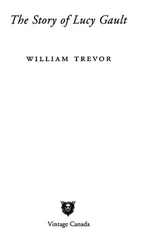Trevor, William - Children Of Dynmouth
Здесь есть возможность читать онлайн «Trevor, William - Children Of Dynmouth» весь текст электронной книги совершенно бесплатно (целиком полную версию без сокращений). В некоторых случаях можно слушать аудио, скачать через торрент в формате fb2 и присутствует краткое содержание. Год выпуска: 1976, Издательство: Penguin Publishing, Жанр: Старинная литература, на английском языке. Описание произведения, (предисловие) а так же отзывы посетителей доступны на портале библиотеки ЛибКат.
- Название:Children Of Dynmouth
- Автор:
- Издательство:Penguin Publishing
- Жанр:
- Год:1976
- ISBN:нет данных
- Рейтинг книги:4 / 5. Голосов: 1
-
Избранное:Добавить в избранное
- Отзывы:
-
Ваша оценка:
- 80
- 1
- 2
- 3
- 4
- 5
Children Of Dynmouth: краткое содержание, описание и аннотация
Предлагаем к чтению аннотацию, описание, краткое содержание или предисловие (зависит от того, что написал сам автор книги «Children Of Dynmouth»). Если вы не нашли необходимую информацию о книге — напишите в комментариях, мы постараемся отыскать её.
Children Of Dynmouth — читать онлайн бесплатно полную книгу (весь текст) целиком
Ниже представлен текст книги, разбитый по страницам. Система сохранения места последней прочитанной страницы, позволяет с удобством читать онлайн бесплатно книгу «Children Of Dynmouth», без необходимости каждый раз заново искать на чём Вы остановились. Поставьте закладку, и сможете в любой момент перейти на страницу, на которой закончили чтение.
Интервал:
Закладка:
‘Brehon’, in Old Irish, means a lawgiver to his clan (it was the name bestowed upon his son by Sean O’Casey, another Irish émigré writer who ended up in Devon). O’Hennessy tells his class, as he puffs on a joint, that they each contain the potential to be extraordinary, and to escape the dreary void of their lives. The pathos of Gedge’s self-discovery, when he briefly triumphs while dressed up as Queen Elizabeth I in the school charades, sets a fatal ball rolling. ‘ Charrada ’, he is told, derives from ‘the chatter of a clown’; he will adopt this as his mode. Already a dedicated follower of funerals, he instinctively decides that his own charrada ‘should incorporate the notion of death … reconciling death and comedy in a theatrical act’.
Gedge’s journey towards this act, through the wreckage of little lives, pulling out secret griefs, doubts, bereavements and hypocrisies, is by turns horribly funny and unbearably sad. Trevor charts it meticulously. No one better describes the sensation of slowly losing it under the influence of alcohol, and Gedge’s sherry binge at the Abigail dinner table is a comic tour de force; but what it precipitates is ruthlessly tragic. In its portrait of a diabolical force at work, The Children of Dynmouth recalls Muriel Spark’s The Ballad of Peckham Rye , and Spark’s writing bears close affinities to Trevor’s. But though the chronology of Trevor’s novel moves inexorably to a climax at Easter, and the champion eventually called to do battle with Gedge is the local vicar, there is little hope of a final redemption.
Repeatedly in the novel we are shown night falling on the town, as its people turn to sleep and dream; but the end of day does not confer eventual benediction, as in Under Milk Wood . Some kind of reparation is made at the end, but not by Gedge, who is left to project himself into a yet more baroque fantasy. Significantly, this concerns a secret conception and birth; another of Dynmouth’s deranged inhabitants, in fact, believes she is the mother of Jesus. The part played by religion in The Children of Dynmouth is reminiscent of Miss Gomez ; it may provide a crutch, but it will not be a fiery chariot of deliverance. ‘What use’, the vicar asks himself, ‘were services that revealed the Crucifixion when there was Timothy Gedge walking about the place, a far better reminder of waste and destruction?’ If there are supernatural forces pulsing through this world, they are not benign. Kate uneasily remembers a ‘disturbed girl’ at her school who was able to levitate eight feet above the ground and had to be removed. ‘Adolescents often harboured poltergeists.’ The vicar’s wife, who sees things more clearly than most people, wonders at the end about the vast futures lying before children, ‘where their stories would be told, happy and unfortunate, ordinary and strange’. But nothing good will come of the story of Timothy Gedge.
There is another prophetic aspect of this novel, eerie in its own way: more than thirty years ago, Trevor anticipated ‘celebrity culture’ and its effect on the marginalized, the disaffected, the disenfranchised. The names of television programmes and ‘personalities’ – Alias Smith and Jones , Bruce Forsyth, Petula Clark, Benny Hill – hum on screens in the background, and speckle the text, along with more sinister tabloid fixtures such as Lord Lucan. It is they who promise the deliverance sketched by Brehon O’Hennessy. Gedge believes implicitly that Hughie Green will stay at the Queen Victoria Hotel, attend the Spot the Talent competition and make him a star (‘Only I heard of stranger things’). Trevor’s gift of conjuring up evil and obsession, and making them utterly convincing, is central to this consummate novel. But it is counterpointed with his extrasensory ability to isolate the grotesqueries of everyday fantasy, and the pathos of lives lived at second hand.
Roy Foster
For Patrick and Dominic
1
Dynmouth nestled on the Dorset coast, gathered about what was once the single source of its prosperity, a small fishing harbour. In the early eighteenth century it had been renowned for its lace-making and its turbot, and had later developed prettily as a watering place. Being still small, it was now considered unspoilt, a seaside resort of limited diversions, its curving promenade and modest pier stylish with ornamental lamp-posts, painted green. At the foot of grey-brown cliffs a belt of shingle gave way to the sand on which generations of Dynmouth’s children had run and played, and built castles with moats and flag-poles.
In an unspectacular way the town had expanded inland along the valley of the Dyn. Where sheep had grazed on sloping downs a sandpaper factory stood now and opposite it, on the other side of the river, a tile-works. At the eastern end of the promenade, near the car-park and the public lavatories, there was a fish-packing station. Plastic lampshades were scheduled to be manufactured soon on a site that had once been known as Long Dog’s Field, and there were rumours – denied by the town council – that the Singer Sewing Machine organization had recently looked the town over with a view to developing a plant there. There were three banks in Dynmouth, Lloyd’s, Barclay’s and the National Westminster. There were municipal tennis-courts beside the Youth Centre, and a Baptist chapel and a Methodist chapel, the Church of England’s St Simon and St Jude, the Catholic Queen of Heaven. There were nine hotels and nineteen boarding-houses, eleven public houses and one fish and chip shop, Phyl’s Phries, next to the steam laundry on the Dynmouth Junction road. There was the East Street Bingo and Whist-Drive Hall and the ancient Essoldo Cinema in flaking pink, dim and cavernous within. Sir Walter Raleigh Park, enclosed by ornamental railings that matched the promenade’s lamp-posts, was rented from the council by Ring’s Amusements every summer season. Spreading inland from the cliffs, a golf-course had been laid out in 1936.
Winter and summer alike, every Sunday afternoon, the Badstoneleigh and Dynmouth Salvation Army Band marched through the town. Twice a week or so the Dynmouth Hards, a gang of motor-cyclists in fringed black leather, rampaged by night, with their black-fringed girl-friends crouched on pillions behind them. In 1969 there’d been a strike at the sandpaper factory. In 1970 an assistant chef at the Queen Victoria Hotel, dissatisfied with the terms of his employment, attempted to burn the building down by soaking curtains and bedclothes in paraffin, an incident that was reported on an inside page of the Daily Telegraph. The man, a Sicilian, was stated by Dr Greenslade to be insane.
A pattern, familiar elsewhere too, prevailed in Dynmouth. The houses of the well-to-do, solitary and set in generous gardens, were followed in order of such esteem by semi-detached villas that stood like twins in Dynmouth’s tree-lined avenues and crescents. After which came dwellings that had a look of economy about them, reflecting the burden of rent or mortgage. Far from the sea-front and the centre of the town was the sprawl of council estates and sand-yellow blocks of council flats. In streets near the river there were terraced houses of cramped proportions, temporarily occupied by those who waited for their names to rise to the top of a housing list. So close to the river that they were regularly flooded by it were the cottages of Boughs Lane, which people said were a disgrace. The handsomest dwelling in Dynmouth was Sea House, high on the cliffs beside the golf-course, famous for the azaleas of its garden.
Of the town’s 4,139 inhabitants half were children. There were three nursery schools: the Ring-o-Roses, Lavinia Featherston’s at the rectory, and the W R V S Playgroup. There was Dynmouth Primary School, Dynmouth Comprehensive and the Loretto Convent. There was Down Manor Orphanage, redbrick and barrack-like, beyond the electricity plant, and Dynmouth Nurseries, a mile outside the town. The Youth Centre was run by John and Ted.
Читать дальшеИнтервал:
Закладка:
Похожие книги на «Children Of Dynmouth»
Представляем Вашему вниманию похожие книги на «Children Of Dynmouth» списком для выбора. Мы отобрали схожую по названию и смыслу литературу в надежде предоставить читателям больше вариантов отыскать новые, интересные, ещё непрочитанные произведения.
Обсуждение, отзывы о книге «Children Of Dynmouth» и просто собственные мнения читателей. Оставьте ваши комментарии, напишите, что Вы думаете о произведении, его смысле или главных героях. Укажите что конкретно понравилось, а что нет, и почему Вы так считаете.










